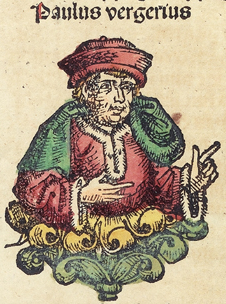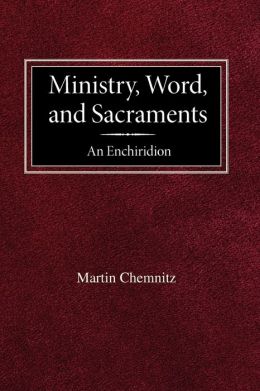 Vergerius . . . was commissioned to go to the diet at Worms, where he made a speech on the unity and peace of the church, which he printed and circulated -- and in which he principally insisted on the arguments against a national council.
Vergerius . . . was commissioned to go to the diet at Worms, where he made a speech on the unity and peace of the church, which he printed and circulated -- and in which he principally insisted on the arguments against a national council.On his return to Rome, the pope intended to have rewarded his services with a cardinal's hat, but changed his purpose on hearing it insinuated that a leaning towards Lutheranism was perceptible in [Vergerius] from his long residence in Germany.
The pope, however, was not more offended than Vergerius was surprised at this charge, which he knew to be absolutely groundless; yet this circumstance, probably arising from personal malice or envy, proved ultimately the means of Vergerius's conversion.
With a view to repel the charge of heresy, he now sat down to write a book, the title of which was to be Adversus apostatas Germaniae, against the apostates of Germany; but as this led him to a strict investigation of the protestant doctrines, as found in the works of their ablest writers with a strong conviction that they were in the right.
He then immediately went to confer with his brother, John Baptist Vergerius, bishop of Pola, in Istra, who was exceedingly perplexed at his change of sentiment, but on his repeated entreaties, joined [his brother] in examining the disputed points, particularly the article of justification, and the result was, that both prelates soon preached to the people of Istria the doctrines of the reformation, and even dispersed the New Testament among them in the vulgar tongue [i.e. the people's common language - which in this case was probably Croatian].
The Inquisition, as well as the monks, soon became alarmed at this, and Vergerius was obliged to seek refuge in Mantua, under the protection of cardinal Herbules Gonzaga, who had been his intimate friend; but Gonzaga was after a short time obliged by remonstrances from Rome to withdraw his protection, and [Vergerius] finally went to Padua, and thence to the Grisons, where he preached the Gospel for several years, until invited by the duke of Wirtemberg to Tubingen, and there he passed the remainder of his days.
From The General Biographical Dictionary by Alexander Chalmers.






